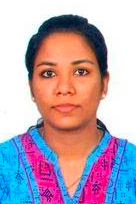
 Sneha Baby is a Registered Nurse, working at the Government T. D. Medical College Hospital, Alappuzha, Kerala. In this blog, she talks about her recent experience of working in an isolation ward, while caring for a patient with COVID-19.
Sneha Baby is a Registered Nurse, working at the Government T. D. Medical College Hospital, Alappuzha, Kerala. In this blog, she talks about her recent experience of working in an isolation ward, while caring for a patient with COVID-19.
I had been to isolation wards and rooms before, but I only really understood what isolation meant after being exposed to the recent Coronavirus disease (COVID-19) in Kerala, India.
Following news of rapidly growing incidence and mortality rates of COVID-19 in China, we received a red alert that the first person in Kerala had tested positive for the deadly virus, having returned from Wuhan, the epicenter of the outbreak. Another patient was being cared for at the Government Medical College Hospital, Alappuzha, Kerala, where I work as a Staff Nurse.
I was on leave when I received a call to return to work to support my colleagues and the community in the fight against COVD-19. It goes without saying that, at that moment, I made the decision to return to work, however a million questions and thoughts streamed through my mind, as I wondered how my family would react, and who I should share this information with. On my return to work, I was immediately given preparatory classes on how to use Personal Protective Equipment (PPE): donning (the sequence of putting on the PPE) and doffing (the sequence of removing the PPE). We were also told key facts about COVID-19. As a team, we felt confident that we had all the information in hand, but we all knew the internal struggle we were facing as we all had our own concerns and confusion.
I was posted to the COVID-19 isolation unit for six days (4-9th February 2020). In the beginning, I cared for only a few patients, however, the dress code, the highly sensitive environment and the psychological pressure were tiresome. Working for four hours daily, wearing the PPE without air conditioning was the toughest part of it all. These four hours of duty without water, rest, refreshment and washroom was extremely difficult to bear.
After doffing each day, we had to take a thorough bath, wash and dry our clothes before leaving the station.
The young man I cared for was brave and calm. He cooperated and responded well to all the restrictions. He was alone amidst a number of vacant rooms and could contact his family only through his mobile phone. Nurses, doctors and counselors were there for him to provide medical care and psychological support.
The three patients that we had in Kerala have all been discharged now and we are delighted. There is still a long way to go to fight COVID-19 which knows no borders and does not discriminate, but we are ready and proud to have a health system ready to tackle the outbreak. We learned valuable lessons from the 2018 Nipah outbreak, and I feel really proud to have contributed my small part to this success.


